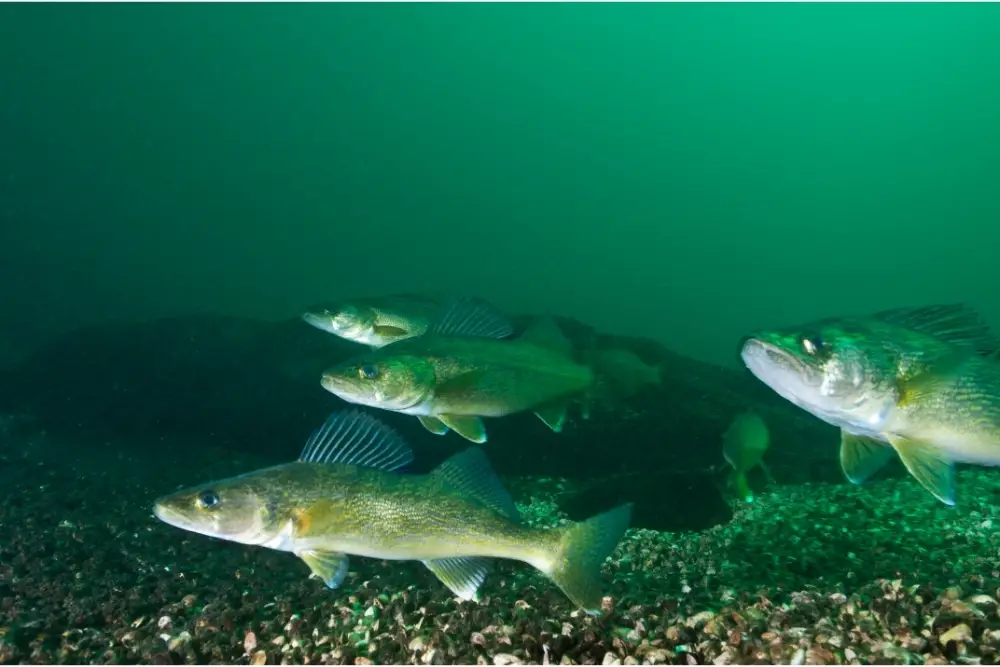Have you ever questioned what happens to fish as the cold, winter months approach?
Fish are cold-blooded creatures specifically known as ectothermic poikilothermic vertebrates, who depend on their environment to maintain their temperature.
Essentially, their temperature fluctuates according to the waters that they inhabit. Humans and most other mammals differ because we produce our own heat, and although our temperature changes slightly with the temperature, it isn’t drastic.
As the temperature in the water decreases, the metabolism of fish will drop too. They will also become rather inactive and pond owners, in particular, are likely to notice reduced surface action as a result. Despite this, fish do not hibernate.
An animal that is in hibernation will appear fairly similar to one that is in a coma. As such, their bodies essentially shut down for a given amount of time, and not even loud noises will disturb them.
Their heart rate will also slow down and their bodies will remain at a temperature that will keep their internal organs warm. Fish, on the other hand, take a winter rest which is known as torpor.
Unlike animals that hibernate, fish do not enter a phase of complete inactivity. It isn’t possible for fish to completely hibernate because they aren’t capable of controlling their temperature independently.
They will continue to feed but their heart rate will be lower than it typically is during the warmer months. Often, cold water fish will gather towards the bottom of the water because this is where it is warmer.
You will likely notice that during these colder months, your fish eat less than normal. This is because they aren’t consuming as much energy in an attempt to keep their temperature similar to that of the waters that they live in.
As a result, you are feeding them far less than you would during the summer months.
For many, the behavior of lively fish during this time can appear rather unusual, because instead of constantly darting through the waters they will sit idle at the bottom.
How long do fish remain in a state of torpor?
It can differ depending on the species, however, most will respond to a change in the season. As the temperature starts to warm up they will gradually venture back to normality. This may be fairly soon if you experience a warmer winter than normal, but if not, it will likely be around spring.
Remember that fish enter a temporary period of rest, so they emerge occasionally during the winter. It can occur for several months.
When the temperature of the water increases to around 50°F most fish will start to display normal behavior. They will be much more active and their metabolism will practically be back to normal so their typical eating habits will resume.
If you are a pond owner that is awaiting signs that your fish are no longer in a torpor state, it is important to remember that their return to normality may not happen suddenly.
Most fish will begin to make slow movements until their temperature has increased. Likewise, you may be looking for signs that will indicate when your fish is set to enter this temporary state of inactiveness.
In most cases, as the water temperature decreases fish will not move around so fast. As their metabolism slows down, their eating habits will also begin to change.
Furthermore, you may also notice that they are no longer swimming near the top of the water as they usually would. Instead, they have started to go down to the bottom of the pond in search of pockets of warm water where they will then remain for winter.

How you can help your fish when they are in torpor?
If possible, try to cut out a section of the ice as this will allow any gases to exit and oxygen to enter. Ideally, you should try and do this as quietly as possible so as not to disturb the fish inhabiting the water beneath the ice.
Furthermore, it is also recommended that you clean and carry out all necessary maintenance before winter approaches.
As mentioned, the fish in your pond aren’t likely to be very active during this time, so it isn’t going to affect them massively if you don’t do this. There are also specific types of food available that aim to make the transition in and out of torpor easier for them.
For example, you can feed cold water food to them during the autumn and spring and because it has less protein it is going to prepare their systems for the colder months.
In the wild, fish like salmon and eels tend to migrate to warmer water. Sometimes, they may end up in locations that are quite a distance away from where they originally came from.
This is because, unlike koi fish and goldfish, they do not linger in the deepest parts of the water where the temperatures are warmer, instead, they go in search of the warm waters that will keep them alive.
Although fish can be more difficult to catch during the winter, as they are protected by a layer of ice, some would suggest that this season provides the best opportunities for fishing so long as you have the correct lure and plenty of patience.
Final Thoughts
Though fish do not hibernate during the cold, winter months, their behavior may appear similar to an animal that is in hibernation, fish enter a more temporary state where their bodies do not shut down completely.
Fish do not hibernate during the winter because it simply isn’t possible as their bodies will not allow them to.
If you are a pond owner, you will likely notice signs that your fish are entering this phase. Similarly, you are likely to notice signs when they are exiting it.






